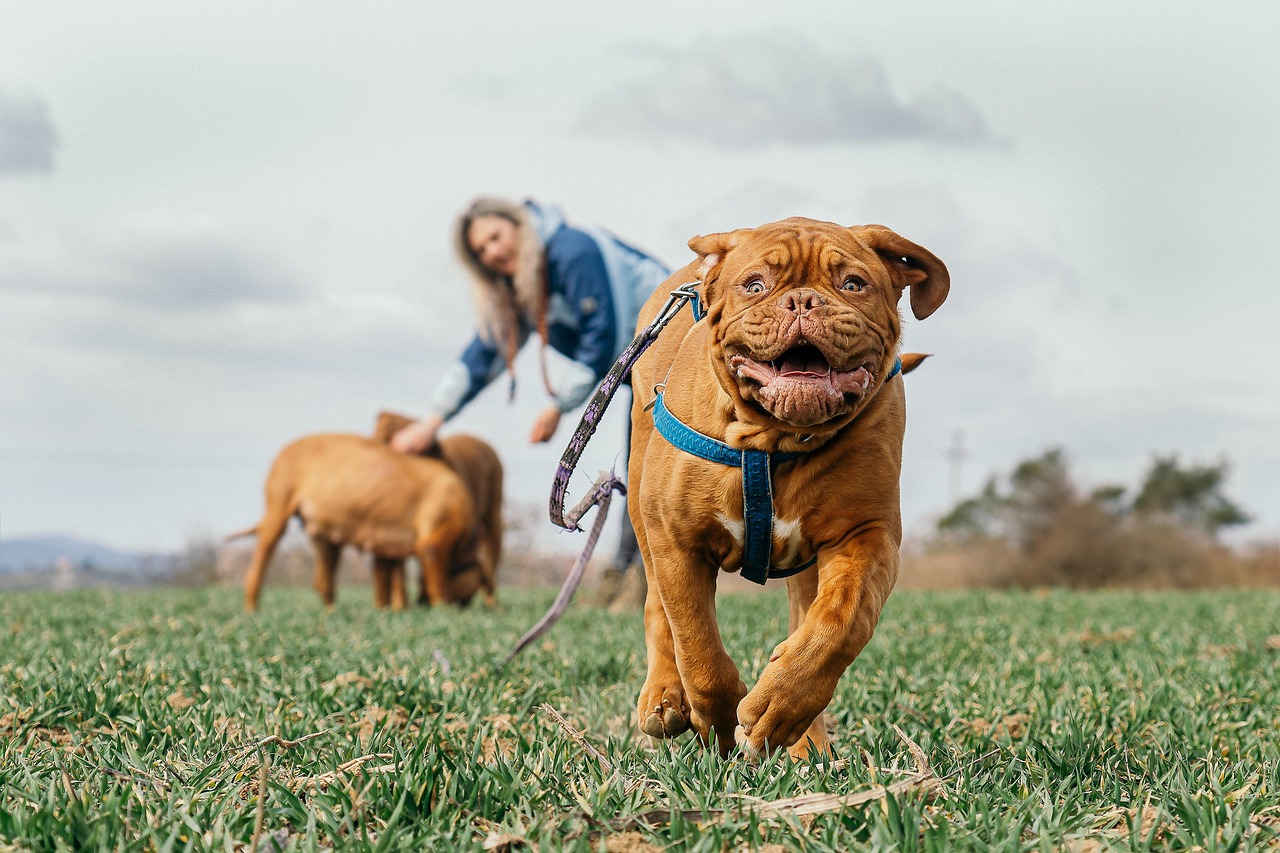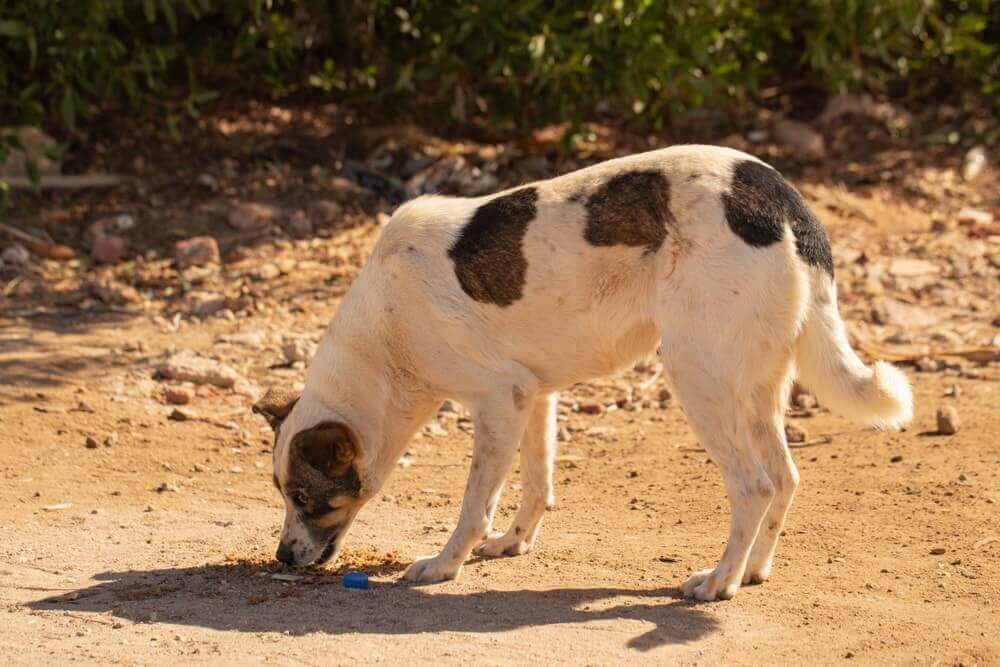Hey Ollie blog readers! We’re offering you an exclusive 60% OFF your starter box! Try now!
Fleas. Even hearing the word might be enough to make you start itching. Once fleas make themselves at home on your pet they can lay over 2,000 eggs in their lifetime. Fleas might also live in your pet’s bedding, your couch, carpets or other soft surfaces in your home. This is why dog fleas leave you vulnerable to a pretty serious infestation if you aren’t able to control the fleas quickly.
Signs of a flea infestation include an itchy pet, small reddish-brown flecks on your pet’s bedding or furniture that look like pepper (flea feces) and even the fleas themselves moving around.
You want to make sure you understand the life cycle of fleas so that you’re able to spot (and treat) appropriately for every stage. Flea eggs hatch between 2 days and two weeks after an adult female lays her eggs. Young fleas are or larvae are born blind and avoid light. They take about 5 to 14 days to mature into pupae or young fleas. Pupae become full-grown adult fleas in as short a time as one week and as long as several months. The breeding cycle will continue as long as female fleas continue to lay their eggs.
In order to keep fleas out of your home and off of your dog, there are many safe and effective natural remedies. Using these natural remedies as your first line of defense will help you avoid the need for chemicals that could have potentially harmful side effects for both the humans and the pets in your home.
What Kills Fleas on Dogs Instantly and Naturally?
When your dog has fleas, you want relief—and fast. Fleas don’t just cause itching and discomfort; they can lead to skin infections, allergic reactions, and even tapeworms. And because they multiply quickly, even a small problem can turn into a full-blown infestation in days. That’s why acting quickly matters.
At the same time, many pet parents want to avoid harsh chemicals or synthetic treatments, especially for dogs with sensitive skin or allergies. Choosing a natural approach that works quickly can help stop fleas in their tracks while keeping your pup safe from unnecessary irritation.
The goal is simple: kill the fleas without stressing your dog’s system. Whether you’re dealing with a one-time flea encounter or a seasonal battle, using fast-acting, natural remedies can offer real relief—without the unwanted side effects of stronger treatments. It’s all about finding that balance between effective and gentle, so your dog can get back to feeling like themselves again.
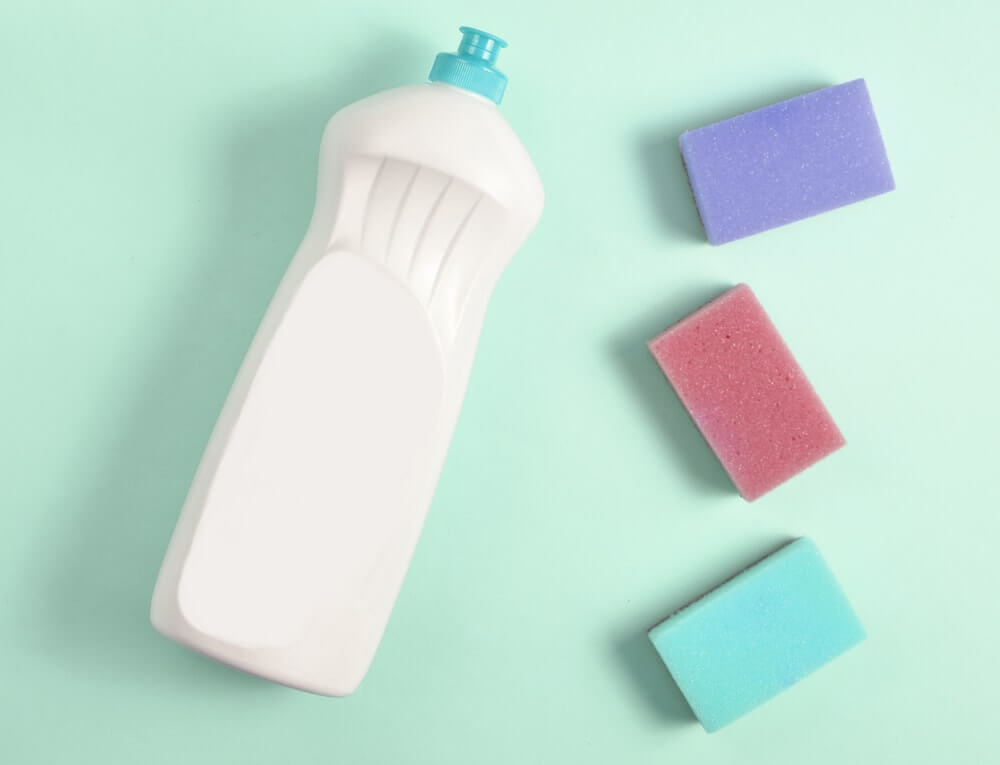
10 Natural Home Remedies For Dog Fleas
1. Dish Soap
You can use dish soap to create a trap for the fleas in your home. What you want to do is place a bowl of warm water and dish soap in the areas of your home where you’re seeing the most flea activity. Because of the viscosity of the mixture, it effectively traps and kills fleas. The best time to use this method is at night since fleas are nocturnal.
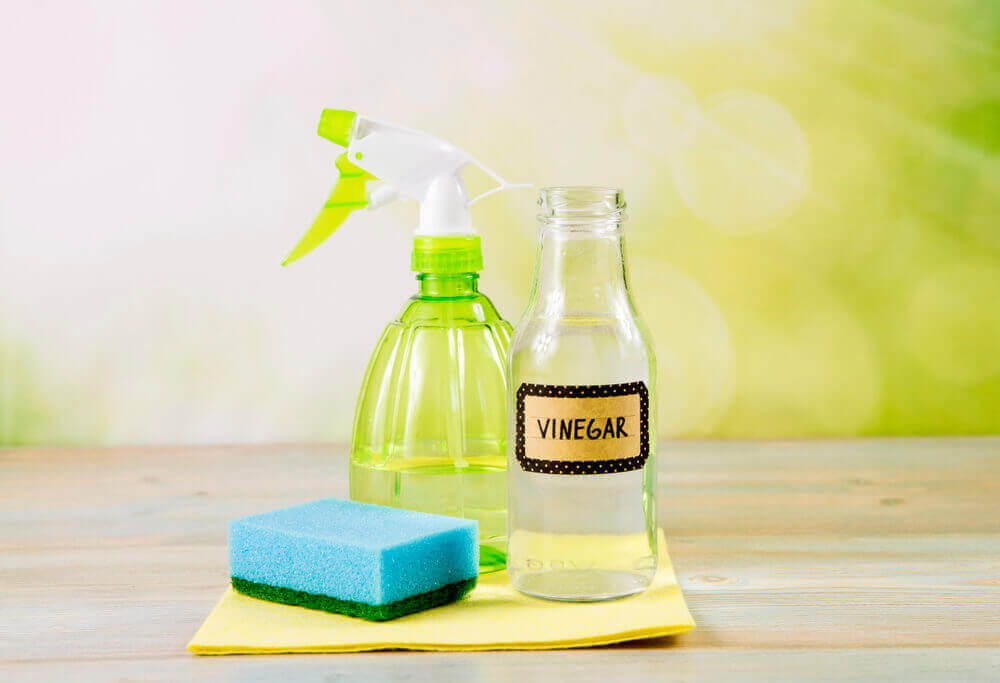
2. Homemade flea spray
There are several recipes which include natural ingredients like vinegar, witch hazel, lemon, and other essential oils that you mix into a spray bottle. Once you have thoroughly cleaned the affected area (vacuum thoroughly to remove fleas and any droppings) you can use this spray generously. You’ll want to test in a discrete spot before spraying carpets or curtains so they don’t discolor. Make sure to follow the recipes precisely as undiluted essential oils can cause skin irritation to humans and pets.
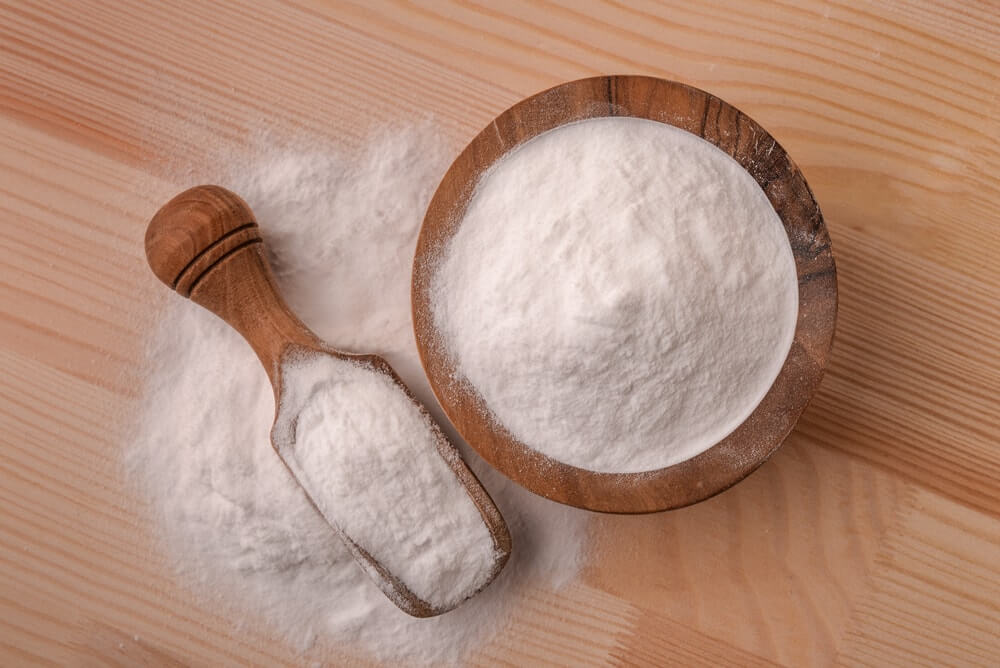
3. Baking Soda
A sprinkle of baking soda before vacuuming a flea-infested surface may help increase the effectiveness of your vacuum. Sprinkle on the baking soda and let it sit, then vacuum thoroughly to get rid of any remaining fleas. You will still need to empty the vacuum when you’re done or remove the bag away from your home. You don’t want any fleas to remain in the bag or container and continue to breed.
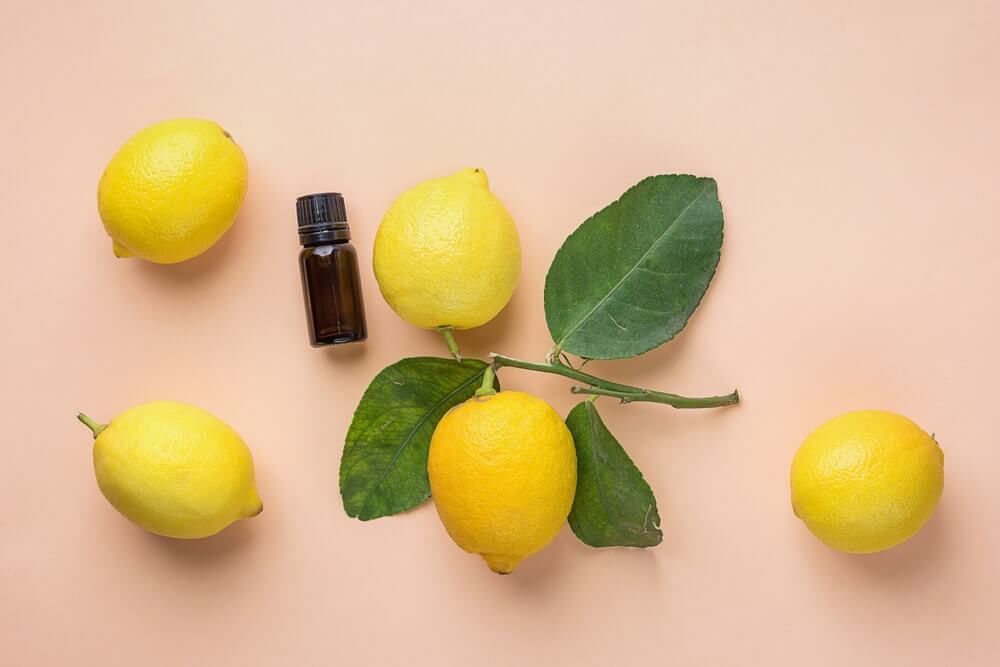
4. Lemon
You can’t just put lemons around the house and expect fleas to leave, but citrus oils like those from lemon rinds can help you get rid of fleas. Some experts recommend using it as a spray as outlined in the second tip. You never want to use essential oils directly on your skin or on your pet as it could cause burns or skin irritation. Make sure you mix into a carrier like vinegar or pet-safe carrier oil. Another bonus of using lemons to get rid of fleas is the pleasant natural aroma!
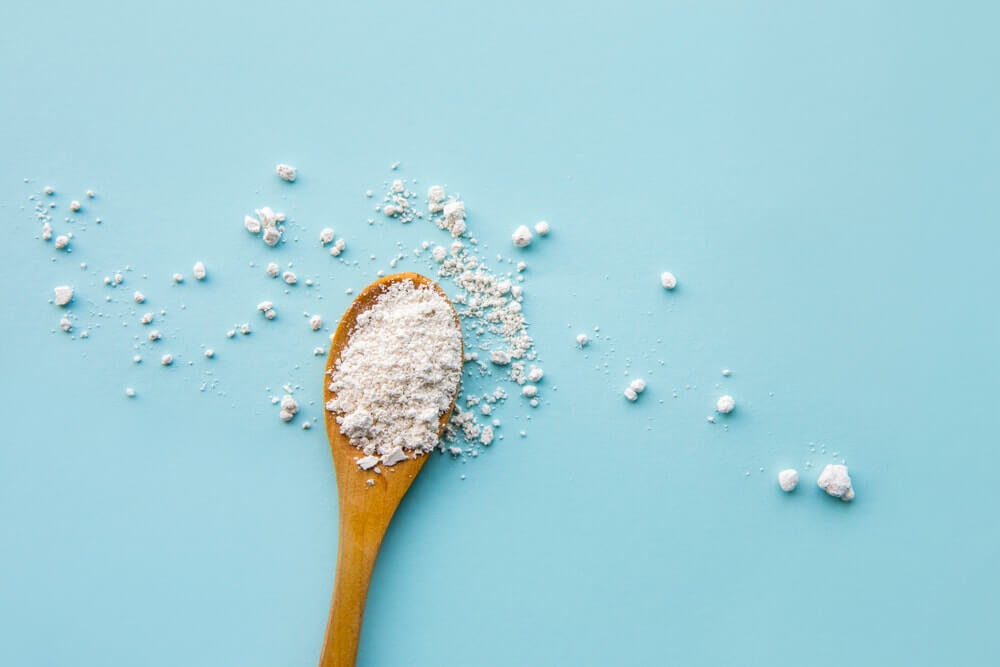
5. Diatomaceous Earth (DE)
DE is made of finely ground silica, the same substance that makes up sand. You can purchase it at a local health food store. Make sure to purchase food-grade DE —not industrial-grade. To treat fleas you want to sprinkle it over impacted surfaces (like your carpets) and let it sit for a few hours. Finally, vacuum up the DE and the fleas and be sure to empty the vacuum and remove the contents, or change the bag and throw the old bag away outside of your home. Be aware that the dust can irritate your lungs and your pet’s. Both of you may want to stay out of the space you’re treating until the dust has settled to avoid breathing it in.
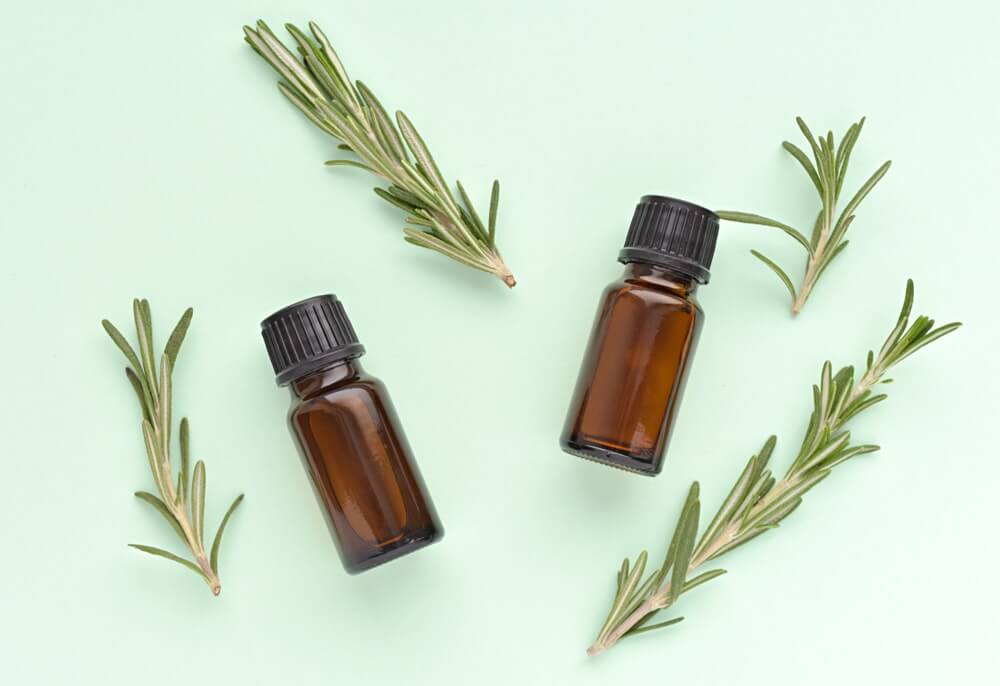
6. Rosemary
Rosemary essential oil is another pleasant-smelling ingredient with flea-repelling properties. You can use this oil similarly to how you’d use lemon oil—in a spray. It will make your home smell like the holidays and keep the fleas away from you and your pup!
Note: Rosemary will not actually get rid of existing fleas but will repel them and prevent them from coming back.
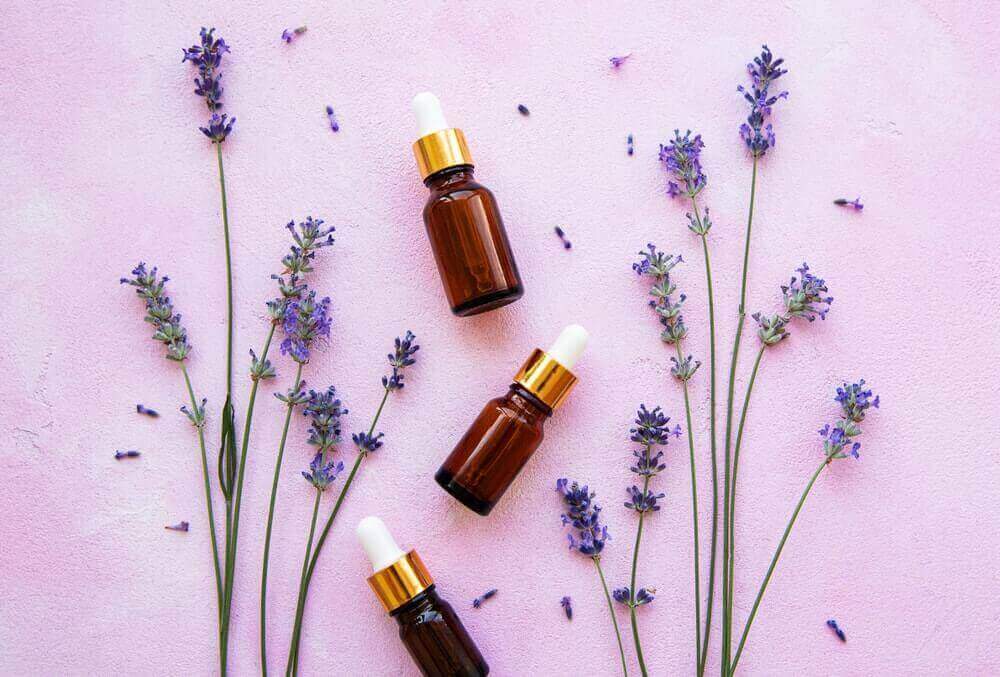
7. Lavender
In addition to its calming properties, lavender is also hated by fleas. As a bonus, your home will smell like a spa and you and your dog may benefit from the relaxing properties of lavender.

8. Spearmint
Planting spearmint in your garden will help keep the fleas away from your home. You may want to pot your spearmint plants away from others, as mint is known to overtake garden plots. Feel free to enjoy some of your harvests to make tea or even a mojito if you like to indulge (adult pet parents only, obviously).
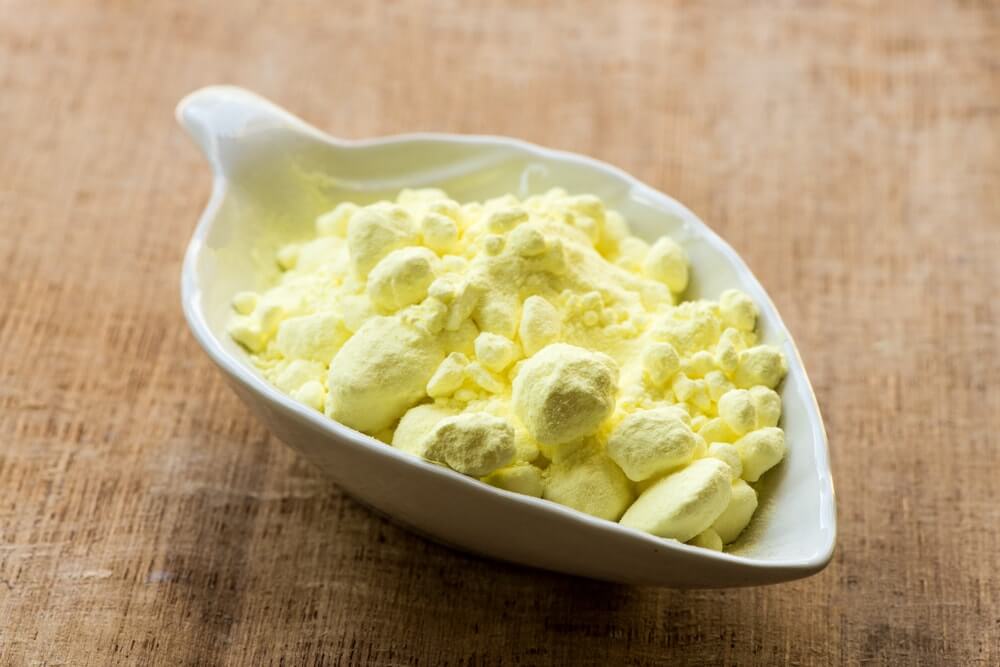
9. Sulfur
Yes, the same substance that makes rotten eggs so stinky can also help you eliminate a flea problem! This remedy is best used in places your pet hangs out outside of your home (grassy areas, shrubs, etc.). Sprinkle powdered sulfur in affected areas but don’t let your pet eat it. While it is not toxic to humans, consuming sulfur can make dogs sick or even be fatal.
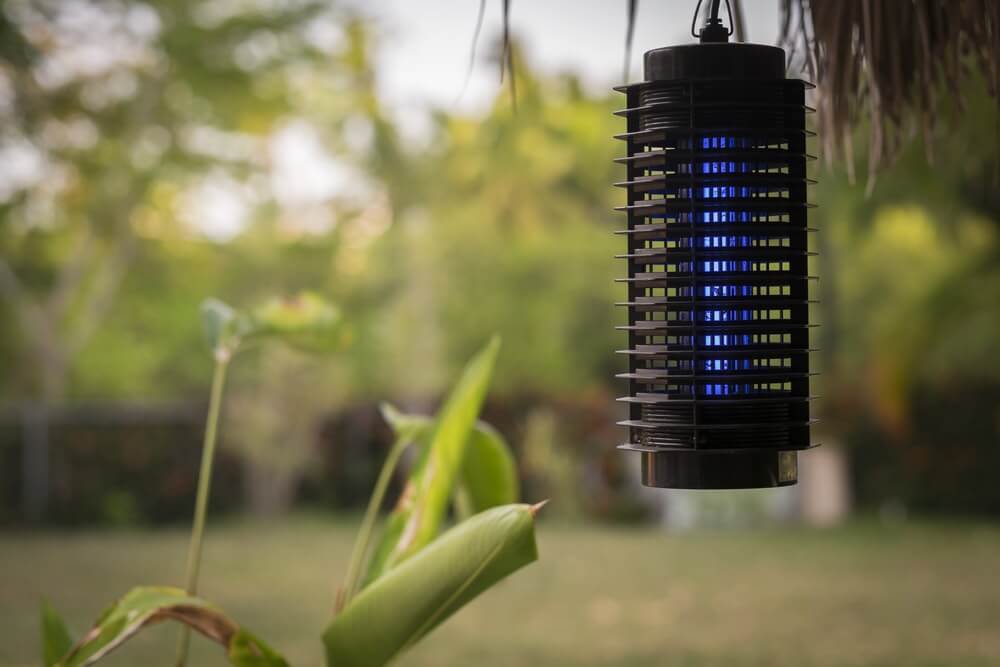
10. Light traps
Light traps are used at night and can trick fleas into thinking the object in front of it is your pet. They go to make themselves at home and are then trapped leaving you free to remove them from your home. The benefit of using light is that you don’t need any chemicals and there are no sprays that can wet or damage your delicate carpets or other fabric in your home.
To keep fleas out of your home you’ll want to wash all of your pet’s bedding and blankets and dry in a hot dryer. Vacuum all soft surfaces in your home and dispose of the vacuum bags or contents of your bagless container outside of your home. This will make sure the fleas are not breeding inside your vacuum.
You’ll also want to be sure you are not just removing the live fleas from your home but also any eggs. If eggs remain in your home you run the risk of another flea infestation — not something any pet owner wants to deal with twice!
How to Prevent Fleas
To stop fleas from entering your home:
Ensure your lawn and garden are well maintained
Trimmed grass and shrubs look great to us, but are unappealing to fleas. You also want to make sure other pests like mice or raccoons aren’t nesting in your yard or attic. These animals can transport fleas into your yard or even your home where they can infect your pet, bedding, and carpets.
Ensure your pet is well-groomed
Keeping up with routine grooming can help you stop problems before they get big. Keeping long-haired pets appropriately groomed will keep fleas from moving into their hair. This doesn’t mean you need to shave a long-haired pet.
Avoid taking your pet into areas that are breeding grounds for fleas
If you know that fleas are already living in certain areas, try to keep your pet away. If you encounter fleas on a walk or hike, treat your pet (and your clothing) to keep them from spreading or setting up residence in your home.
Protect your pet when outside the home
You can create a natural flea collar or bandanna using some of the recommended essential oils like lemon, rosemary, and lavender. Remember to never place undiluted oil directly on your pet’s skin and remove the collar or bandanna from your pet when they’re inside your home.
Even if you don’t see your pet itching, you want to be sure you’re checking your pet and home regularly for fleas. Infestations can happen quickly and can be hard to stop. Be sure to stay ahead of the issue!
What Are Fleas?
Fleas are tiny, wingless insects that feed on the blood of animals—and they love dogs. These pests are quick, jump long distances, and reproduce at a rapid rate. Just one flea can lay up to 50 eggs a day, so even a small infestation can get out of hand fast. They’re most active in warm, humid environments but can survive indoors all year long.
Fleas are more than just a nuisance. Their bites can cause itching, redness, and discomfort. Some dogs develop flea allergy dermatitis, a reaction to flea saliva that leads to intense scratching, hair loss, and skin infections. Fleas can also carry parasites like tapeworms and diseases that may spread to both pets and people.
You might spot fleas by noticing your dog scratching or biting at their skin, especially near the base of the tail, belly, or behind the ears. You may also see tiny black specks (called flea dirt) in their fur, which looks like pepper but turns red when wet—because it’s actually dried blood.
Knowing what fleas are and how they affect your dog is the first step in protecting them. Quick action and the right home remedies can help prevent a full-blown infestation from taking hold.
When To See A Veterinarian About Dog Fleas
While many home remedies for fleas on dogs can help manage minor cases, there are times when it’s important to get your vet involved. If your dog has a severe flea infestation, shows signs of skin damage, or just can’t seem to get relief, it’s time for professional support.
You should see a veterinarian if:
- Your dog is scratching constantly, biting their skin, or losing fur
- You notice open sores, red patches, or scabs from excessive scratching
- Fleas keep coming back despite home treatments
- Your dog seems lethargic, pale, or weak, which could signal flea-related anemia
- You see signs of a tapeworm infection, like rice-like segments in your dog’s stool
Vets can offer prescription-strength flea treatments that work fast and are safe for your dog’s size, breed, and health history. They may also recommend medicated shampoos, allergy relief if your dog is reacting to bites, or antibiotics if skin infections have developed.
Even if you prefer natural remedies, your vet can help you build a plan that blends home care with targeted treatments to get fleas under control for good. And that means a happier, itch-free pup.
The Ollie blog is devoted to helping pet parents lead healthier lives with their pups. If you want to learn more about our fresh, human-grade food, check out MyOllie.com.
Tagged As:

The nutrition your dog needs,
the food they want.

Enjoying our articles? Subscribe our Newsletters and get new articles directly to your inbox
You might also like
23 September 2025
6 MINS READ
Back to School: Training Your Dog at Any Age
As we hit back-to-school season rolls around, it’s not just kids who benefit from sharpening their skills and learning something new—our dogs can, too! Training isn’t limited to puppies or p…
by Ollie Pets
23 September 2025
7 MINS READ
Lace Up and Leash Up: A Beginner’s Guide to Running with Your Dog
Running is one of the simplest ways to stay active, and it’s even better with a canine companion. Not only does running with your dog keep you both in great shape, it also strengthens your bond …
by Ollie Pets
18 September 2025
8 MINS READ
Why Do Dogs Eat Rocks? Common Reasons & How To Stop It
Why do dogs eat rocks and is it dangerous? Learn what causes this behavior, what to watch for, and how to stop your dog or puppy from eating rocks safely.
by Gabby Slome






